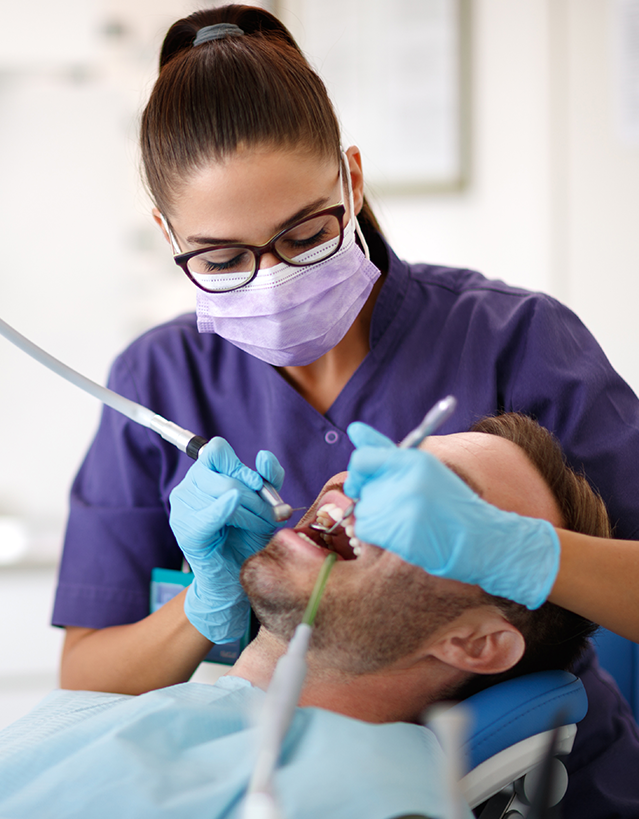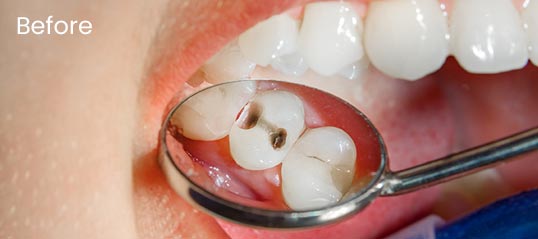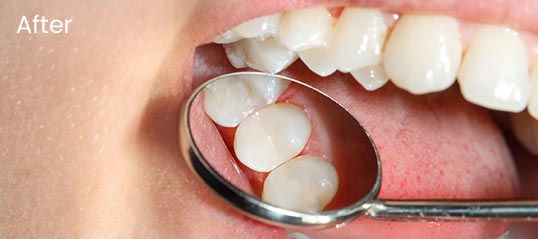
Tooth decay, a common condition also called caries or cavities, leaves permanently damaged areas of the hard surface of the teeth, which often form small holes. Tooth decay occurs from different factors such as lack of proper dental hygiene, high intake of sugary drinks, bacteria in the mouth and frequent snacking.
Untreated tooth decay may extend and affect deeper tooth layers. This leads to tooth loss, severe toothache and infection. You can protect your teeth from tooth decay by visiting Thousand Smiles regularly for dental check-ups and maintaining a good oral hygiene routine.
When you visit our dentist, your diagnosis will include the following:
Our dentist can identify cavities and other dental issues during routine dental check-ups before the issues become more severe and result in life-threatening conditions. Getting adequate dental care early for tooth decay increases the chances of reversing the condition and preventing further damage.
If you get treatment for tooth decay before it causes pain, extensive treatment will not be necessary.
The treatment for cavities depends on the severity of your condition. However, tooth decay treatments include:

If the decay is at its earliest stages, our dentist may recommend fluoride treatment to restore your enamel. Sometimes, fluoride treatment can reverse the early stages of tooth decay. Fluoride treatments contain more fluoride than the fluoride in mouth rinses, toothpaste and tap water.
Your fluoride treatment may be in gel, liquid, foam or varnish form, which you brush on your teeth or place in a small tray to fit over your teeth.
Fillings, also called restorations, are a common treatment for tooth decay that has advanced from the early stage. Different materials are available for filling, including tooth-coloured resins, porcelain or dental amalgam.
The dentist may recommend getting a crown if you have a weak tooth resulting from extensive tooth decay. A dental crown is a custom-made tooth covering for replacing the natural crown of crown.
Your dentist may drill or remove part of the decayed tooth area to ensure the crown fits perfectly. Different materials are available for dental crowns, such as porcelain fused to metal, resin, gold high-strength porcelain and other materials.
If the decay extends to the inner part of the tooth, called the pulp, the dentist may need to perform root canal treatment. A root canal treatment involves treating the infected or damaged tooth instead of undergoing tooth removal.
Our dentist will remove the infected pulp and offer medications to clear the infection, then replace your pulp with a filling.
Our dentist may have to remove the teeth if the tooth is damaged beyond repair. However, removing a tooth leaves a gap that allows other teeth to move into the space. After tooth removal, you may opt for a bridge or implant to replace the missing tooth.
If you experience pain or tooth sensitivity, ensure you book an appointment with our dentist. While you prepare for your appointment, you can do the following.

Before you visit the dental practice, ensure you list the following.
You may consider asking your dentist the following basic questions.


During your appointment, the dentist will ask you questions to ensure an accurate diagnosis, so preparing your answers for these questions will help save you time.
The questions may include the following:

You can take the following steps to alleviate tooth pain while waiting for your dental appointment.
If you experience tooth pain or notice signs of decay, visit Thousand Smiles to see a dentist or call 020 8050 0280 to schedule an appointment with us.